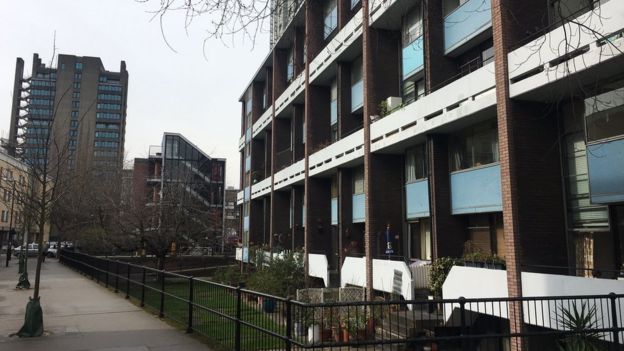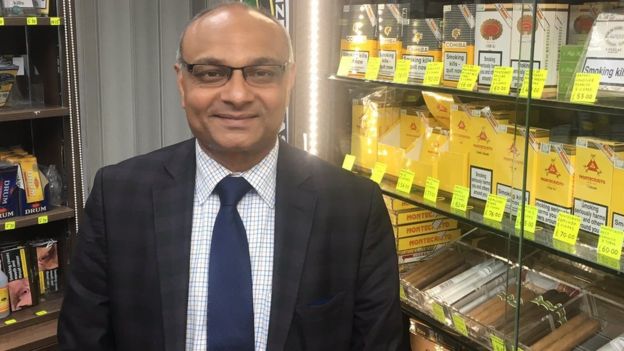Latest Activity
- Top News
- ·
- Everything
Our Christmas lunch celebration
December 12, 2025 from 12pm to 2pmPatient Panel with Together Better and new Befriending Service
December 5, 2025 from 10am to 11:30am
The Book Fair at St Giles’ church
November 19, 2025 at 11am to November 30, 2025 at 6:30pmCarers Rights Day Event - St Giles Church 10-2pm
November 20, 2025 from 10am to 2pm
There are four Golden Lane Estate related facebook accounts and you can follow them here: goldenlaneEC1
Forum
IMAGINE GOLDEN LANE AT NET ZERO
34 discussions
HEALTH & WELLBEING
171 discussions
ESTATE OFFICE ANNOUNCEMENTS
608 discussions
GOLDEN LANE RESIDENTS' ASSOCIATION
126 discussions
GENERAL COMMENTS & QUERIES
1416 discussions
MAJOR WORKS & PROJECTS
128 discussions
BERNARD MORGAN HOUSE
16 discussions
COMMUNITY CENTRE
21 discussions
ITEMS FOR SALE OR RECYCLE
232 discussions
The place where businesses and their office workers vote
On a warm Saturday afternoon in March a group of campaigners heads to the Golden Lane estate in central London.
Local council elections are just days away but these volunteers are not seeking votes on behalf of councillors.
The members of the campaign group We Can Win want to make sure that residents are aware of the unique way that their local authority is elected. It is an electoral system that they object to.
The City of London Corporation covers the so-called Square Mile, which is London's financial centre, and is distinct from the Greater London Authority which covers the whole of the UK capital.
The City has a residential population of less than 8,000 but around 450,000 people work there - and the City Corporation enables a proportion of those workers to vote for councillors too, taking the electorate to almost 19,000.
The campaigners

"I was under the impression, in its simplest form, democracy was about one person one vote," says campaign director Dan Firth.
"But in the City of London Corporation elections, businesses have almost double the votes of ordinary people and to me that feels like an injustice."
We Can Win is targeting the City elections with two main aims: to oppose what it sees as votes for big business and to maximise the number of residents who turn out and vote.
The City is divided into 25 wards with residents mainly concentrated in just four of them: Portsoken, Queenhithe, Aldersgate and Cripplegate, which includes Golden Lane.
Each ward is represented by Common Councillors and an alderman. Elections for Common Councillors take place every four years, with the next election on 23 March, while aldermen are elected at least every six years as their terms expire.
The residents
"Some residents I spoke to were already aware of how the voting system worked," says campaigner Georgia O'Brien. "But those who didn't know were shocked. When I explained that workers had almost double the number of votes as residents, they just looked utterly defeated."
Golden Lane resident Beverley Bytheway is active in the residents' association yet unaware that workers as well as residents get a vote. The road straddles the border with the London Borough of Islington and she thought that both councils were elected in the same way.
She is not a fan of the Corporation: "If they could offload the residents, they would... they're really not interested."
Electoral system
Despite an apparent lack of awareness among some residents, the City of London Corporation is quite open about its system of elections and its website contains information on how to register to vote as a resident or as a worker.
"The City is a democratic institution," insisted a spokesman. "All of its councillors are elected."
For residents, it is one person, one vote but for businesses the number of votes depends on the number of employees.
Sole traders and businesses with up to nine employees get one vote, while organisations with up to 50 staff can appoint one voter for every five people who work there. Organisations with more than 50 staff can appoint 10 voters and then one voter per 50 voters after that.
The City's spokesman added: "As the local authority we provide public services to both 7,400 residents and 450,000 City workers. Therefore to reflect the needs of the workers who come to the City each day, businesses located in the City can appoint people to vote in our local elections.
"The votes allocated to a business are proportional to their number of employees - the first 50 staff entitles a business to appoint 10 voters, but every additional 50 members of staff only entitle it to appoint an extra one voter, so the largest firms do not dominate the list of voters as they could do if it was a simple proportional representation of their workforce size."
In its advice to firms wanting to sign up staff as voters, the Corporation says: "It is important that people nominated to vote reflect the make-up of the organisation as a whole - from chief executive to entry-level employees and even regular contractors - so that the City Corporation represents the full range of the City's workforce. Voters nominated should reflect the whole diversity of an organisation's employees, including gender, ethnicity and seniority."
The big business
Professional services giant Deloitte employs over 10,000 staff and has 260 voters across two wards.
A spokesperson said: "We value the votes we have in the City of London. The City does have an unusual electoral system due to its high number of workers and small residential population, but there are many local issues that Deloitte people care greatly about.
"For example, a thousand Deloitte people cycle into work every day. Their safety and the safety of all road users in our neighbourhood is important to us.
"The councillors provide a very valuable link between Deloitte and our neighbours - other businesses and local residents."
Local government in the City of London can be traced back to medieval times. It is the oldest local authority in Britain and a contender for the oldest continuing authority in the world.
Non-residential votes in other council areas were abolished in 1969 but the system continued for the City Corporation.
The current electoral system dates from an act of Parliament in 2002, which extended voting rights to companies limited by guarantee and increased the business vote. Boundary changes followed, which reduced the number of councillors.
The City of London in number
Permanent residents: 7,400 (2011 Census)
- People who work in the City: 450,000 (Source: City of London Corporation)
- Number of registered voters: 18,983 (Source: City of London Corporation)
- Council wards: 25
- Common Councillors: 100
- Aldermen: 25
- Lord Mayor chosen from amongst the aldermen
The City is known for its financial institutions but bodies qualifying for a vote include shops, bars, restaurants, charities and even churches and hospital trusts.
The small trader
Tobacconist Mukesh Gaglani has been a registered voter in the City for 25 years. As a small business owner with two part-time employees, he gets one vote.

"You have a say in the progress of the City," he tells me, adding that he does not feel that big business dominates.
"As far as I'm concerned, my vote is the same as anyone else's. You don't feel like you are in a minority."
What is his response to proposals that only residents should be allowed to vote?
"I don't think it's appropriate. The City gets most of its revenue from commercial properties."
So how does being elected by workers as well as residents affect the job of a councillor?
The councillor
Sophie Fernandes has served as one of four independent Common Councillors representing Coleman Street ward since 2009.
"I get queries about rubbish collection, I get queries about the ease with which people get to work, about infrastructure," she says, adding: "The City of London is also a landlord. It owns a few buildings in my ward. I have complaints just like any other landlord has."
When asked how many residents her ward has, she can think of just four, two of whom moved out temporarily as a consequence of work on London's Crossrail transport project.
"We try to break up the wards, depending on whether it's a business vote or a residential vote, so that we can concentrate on the needs of that particular ward, because the needs of residents and businesses are very different," she says.
"It is workers who have a vote, it's not businesses who have a vote," she says.
She adds: "I don't think every worker should have a vote because it would completely outweigh residents but in wards such as mine, it is heavily business orientated without residents, so how would you represent this ward otherwise?"
What does she make of the allegation of Golden Lane resident Beverley that the City Corporation would rather be rid of its residential population?
"That's totally untrue. The residents bring diversity to the City."
To stand as a councillor you need to be a registered voter and a Freeman of the City of London. "If you are voter in the City then you can get freedom without cost, so there is no barrier to standing," Ms Fernandes says.
Party politics
Like nearly all councillors at present, she sits as an independent and does not take a party whip. She is standing this time on a slate alongside fellow independents Michael Cassidy, Stuart Fraser and Andrew McMurtie and argues that being independent helps the City work with both a Conservative government and a Labour mayor of London.
"We do not want party politics," she says. "I fail to see the benefit that party politics will bring when you can still argue your point of view from an independent platform."
That view is being challenged by the Labour Party, which first ran candidates in 2009 and is contesting wards in 2017.
Paul O'Brien, who is contesting Coleman Street for the party, claims that there is an "urban myth of independents in the City". He argues that many councillors list party memberships in their declarations of interests but only Labour openly fields candidates.
A resident of the City himself, Mr O'Brien nevertheless agrees with Sophie Fernandes on the need for worker representation.
"Clearly there are wards with no, or virtually no residents, so there needs to be a different system," he says.
Both opponents and supporters of the voting system agree that the City of London is an unusual organisation with a reach stretching well beyond the Square Mile.
It owns and maintains housing estates and open spaces across Greater London and beyond, including Hampstead Heath and Epping Forest, and provides money to London boroughs though its City Bridge Trust.
Tags:
Replies to This Discussion
© 2025 Created by GLE Website Comms Team.
Powered by
![]()